Healey administration unveils new permit system to address Cape water pollution
Michael P. Norton and Sam Drysdale
State House News, Boston Globe
June 21, 2023

Cape Cod communities will have two years to opt into a new watershed permitting process intended to reverse nitrogen pollution and restore the region’s estuaries to their natural state, according to final regulations released Wednesday by the Healey administration.
If Cape communities do not obtain a watershed permit for a nitrogen-sensitive watershed within the two-year period, new septic systems in those watersheds will be required to include enhanced nitrogen-reducing treatment technology and existing systems will need to upgrade septic systems within five years.
The regulations proposed by the state Department of Environmental Protection are intended to address excessive nutrient loading of local waters, primarily caused by septic systems, while enabling communities to choose their own solutions to the longstanding problem.
Failed and underperforming septic systems are a leading cause of pollution in Cape Cod’s fresh and saltwater systems. Nitrogen and phosphorus in human waste leak from septic tanks into the groundwater, which then flows into bays, estuaries, rivers, and ponds.
The accumulating chemicals in natural water systems encourage the growth of toxic algae and bacteria called cyanobacteria, leading to increasingly frequent closures of lakes, ponds, and beaches in the summer. Nitrogen and phosphorus also deplete oxygen from the water, resulting in large-scale fish kills.
DEP Commissioner Bonnie Heiple said the regulations represent an “innovative and flexible approach” to a “complex challenge.”
The watershed permit is a 20-year permit that allows communities to design wastewater solutions that are intended to be tailored to a specific communities’ needs. This includes working toward installing a sewer system, which is considered by experts to be the most effective way to reduce unwanted nutrients in water systems.
Falmouth, Barnstable, Chatham, and Provincetown are the only four towns on Cape Cod that have publicly-owned wastewater treatment facilities, which serve only a small portion of their population. Orleans, Mashpee, and Harwich are working to build sewer systems or treatment plants, but are at various stages of that expensive process.
MassDEP issued draft regulations in October and has received more than 1,000 public comments since then. In response, the Healey administration emphasized that it will work with communities and homeowners to soften the financial blow of compliance, and said a longer timeframe to update systems is reflected in the final regulations, which are also focused only on watersheds that have been demonstrated to be impaired due to excessive nitrogen pollution.
The final regulations also do not include plans that were in draft rules that would have allowed the state to designate coastal watersheds in southeastern Massachusetts, Martha’s Vineyard, and Nantucket as “Natural Resource Area Nitrogen Sensitive Areas.”
That plan was dropped due to “extensive comments” from people who argued in part that their communities have not had the same time as Cape communities to investigate and plan to address nutrient pollution.
Under the rules, MassDEP would automatically designate 30 watersheds on Cape Cod as “Nitrogen Sensitive Areas” when the regulations become effective on July 7. At that time, a two-year notice of intent and watershed permit application period will start for those communities.
“Nitrogen pollution is one of the most pressing environmental and economic problems facing Cape Cod,” Governor Maura Healey said in a statement. “I’m grateful for our administration’s partnership with Cape communities to develop an innovative path forward to restore and protect some of Massachusetts’ most precious water resources.”
The proposed regulatory solutions are “by no means easy,” added Lt. Gov. Kim Driscoll, the former mayor of Salem, “but will be incredibly effective.” She called the proposed 20-year watershed permits as “the kind of state-municipal collaboration that we will continue to model in the years ahead.”
In announcing the regulations, MassDEP also described the problem.
“Elevated levels of nitrogen in waterbodies causes accelerated growth of nuisance plants, weeds, and algae that use up much of the oxygen in the water and force out indigenous fish and plant species,” the agency said. “Waterbodies often also experience a displeasing cloudy green coloring and unpleasant smell.”
Under the proposed permits, communities could commit to addressing wastewater management and nitrogen pollution through centralized wastewater treatment, alternative approaches such as aquaculture, innovative and alternative septic systems, permeable reactive barrier walls, and fertilizer reduction. State officials noted that Cape communities have already been working on plans that feature a variety of strategies.
But if municipalities fail to obtain a watershed permit within two years, homeowners in those communities will have to update their less-effective septic systems with nitrogen-reducing systems.
Standard septic systems under the current regulations only filter about 25 to 30 percent of the harmful nitrogen nutrients out of wastewater before it flows into the ground, clean water researcher at the Massachusetts Alternative Septic System Test Center Brian Baumgaertel told the News Service in March. When systems fail, they can cause even more nutrient leaking and, therefore, pollution.
The newer alternative systems that these regulations would require for homeowners in non-watershed permitted communities remove closer to 90 percent or 95 percent of the nutrients in wastewater before releasing it into the ground, Baumgaertel said.
Installation of these systems ranges in price, but can cost anywhere from about $20,000 to $40,000.
To address these high costs of clean water, Healey and the Senate both proposed increasing tax credits for septic tank replacements in a tax relief bill that’s currently under discussion on Beacon Hill.
Healey administration unveils new permit system to address Cape water pollution – The Boston Globe
